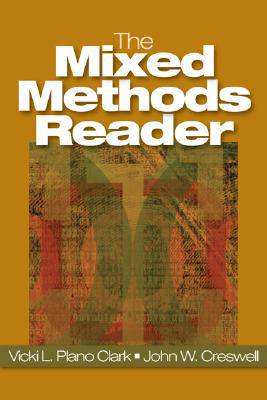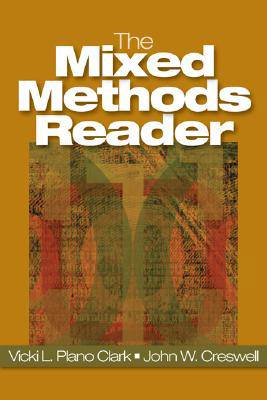
- Retrait gratuit dans votre magasin Club
- 7.000.000 titres dans notre catalogue
- Payer en toute sécurité
- Toujours un magasin près de chez vous
- Retrait gratuit dans votre magasin Club
- 7.000.000 titres dans notre catalogue
- Payer en toute sécurité
- Toujours un magasin près de chez vous
Description
"It premieres the most adept researchers in the field who have bravely and soundly followed mixed methodology approaches."
--NACADA (National ACademic ADvising Association)
In recent years, researchers have begun to combine quantitative and qualitative approaches within single study research designs. As such, the literature on mixed methods research has grown at a rapid pace. While more methodological books addressing mixed methods are becoming available, the foundational writings of this field are still scattered across diverse disciplines and their wide range of publications outlets, leaving students and researchers at a disadvantage to find the exemplary or model studies to help them understand how to conduct their own mixed methods research.
In light of the dispersed nature of the mixed methods literature, The Mixed Methods Reader editors have organized a collection of key methodological mixed methods discussions and exemplar mixed methods research studies in one easy-to-access location. This integrative collection draws from the international literature appearing across diverse research disciplines over the past thirty years. The Mixed Methods Reader is divided into two parts: Part I - Methodological Selections and Part II - Exemplar Research Studies. Part I includes a collection of 14 foundational writings from the mixed methods research literature. These readings convey the overall development and evolution of mixed methods research and address essential topics for researchers new to the field of mixed methods research. These topics include its foundations; design types; implementation issues such as sampling, data analysis, and validity; rhetorical devices for reporting mixed methods studies; and critiques about the current thinking in the field. Part II includes 9 exemplar mixed methods research studies drawn from a range of disciplines and international scholars. The studies were intentionally selected to illustrate four major types of mixed methods designs. As with the methodological chapters, the editors organize the exemplar research studies so that the reader can see a natural progression of the different approaches to conducting mixed methods research.
The Mixed Methods Reader, edited by two leading researchers in mixed methods research, offers students and researchers a rich balance of foundational works and exemplary studies across a range of disciplines. This reader is an invaluable primary or supplementary resource for courses that address mixed methods research.
Key Features:
- Each of the 14 foundational readings offers a brief introduction by the editors, discussing the reading's overall importance to mixed methods research and explaining what aspect of the research process is addressed.
- The foundational readings are organized around the research process to facilitate its use as a text or supplement for research courses emphasizing mixed methods approaches. They cover research design types and purposes, data collection, data analysis, reporting of mixed methods studies, and future directions.
- Each of the 9 exemplary studies include a brief commentary from the editors, highlighting the noteworthy features of the article. These exemplary studies range in discipline and setting yet focus intently on the research process and the various ways of conducting mixed methods studies.
- Visual diagrams accompany each exemplary study: These visual diagrams will convey the overall structure and approach used in each of the studies.
- Discussion questions accompanying each selection further call attention to the key points and help a student or individual researcher to tie together the core concepts presented in the commentaries and articles.
Spécifications
Parties prenantes
- Auteur(s) :
- Editeur:
Contenu
- Nombre de pages :
- 640
- Langue:
- Anglais
Caractéristiques
- EAN:
- 9781412951449
- Date de parution :
- 10-12-07
- Format:
- Livre relié
- Format numérique:
- Ongenaaid / garenloos gebonden
- Dimensions :
- 171 mm x 231 mm
- Poids :
- 839 g







